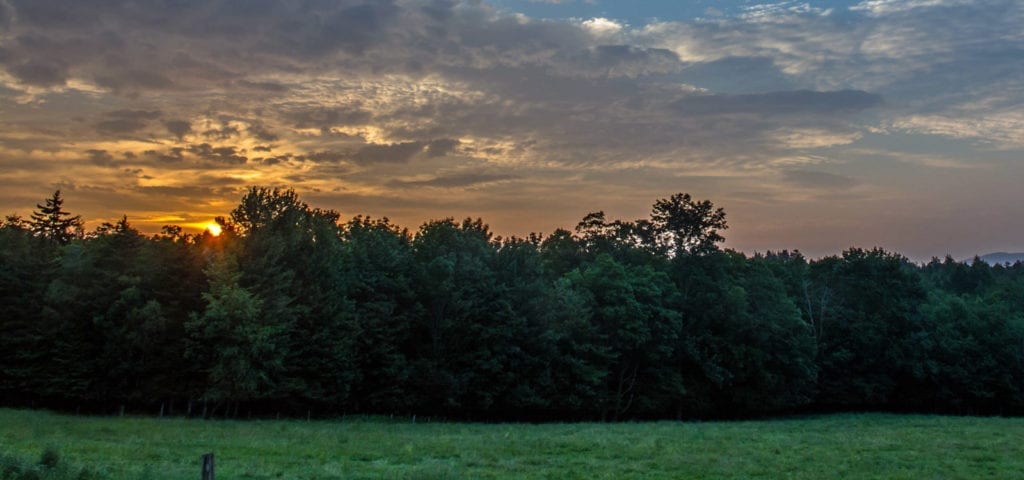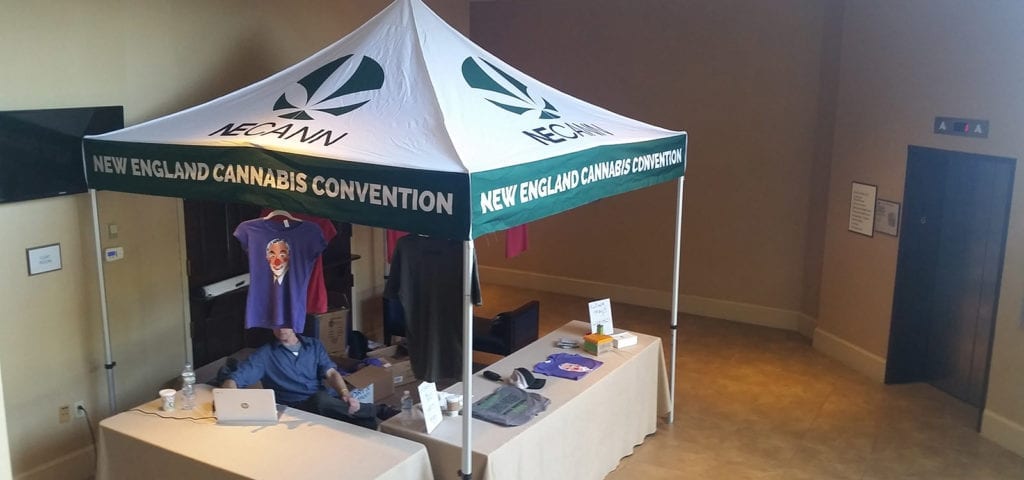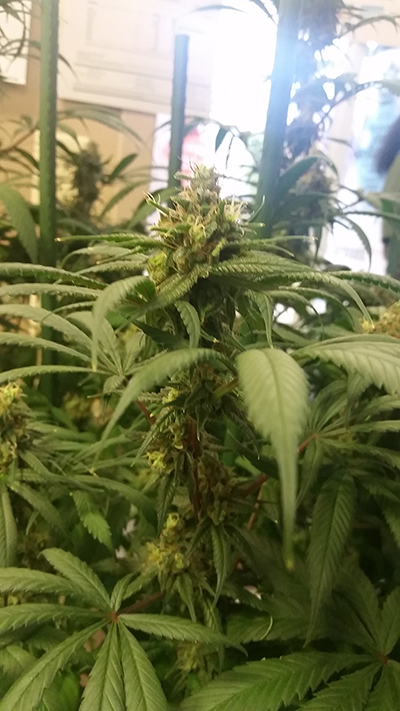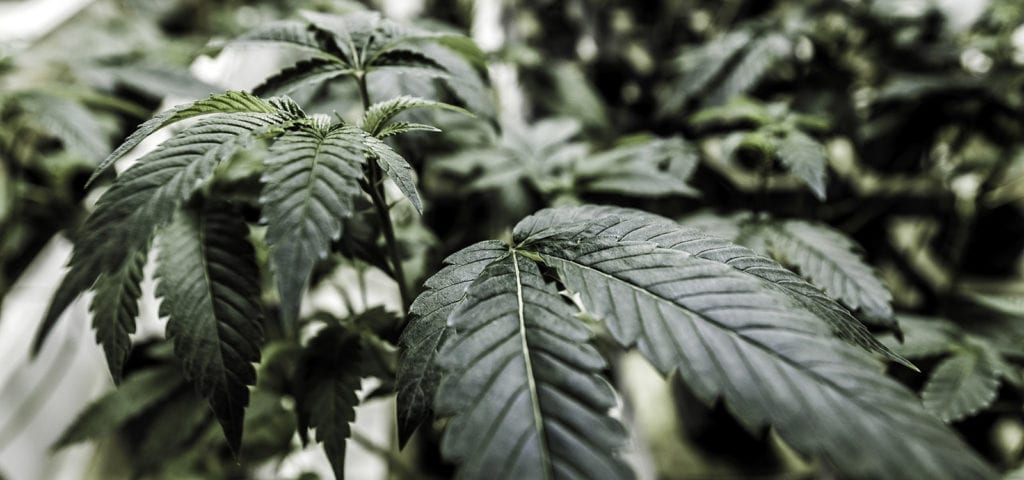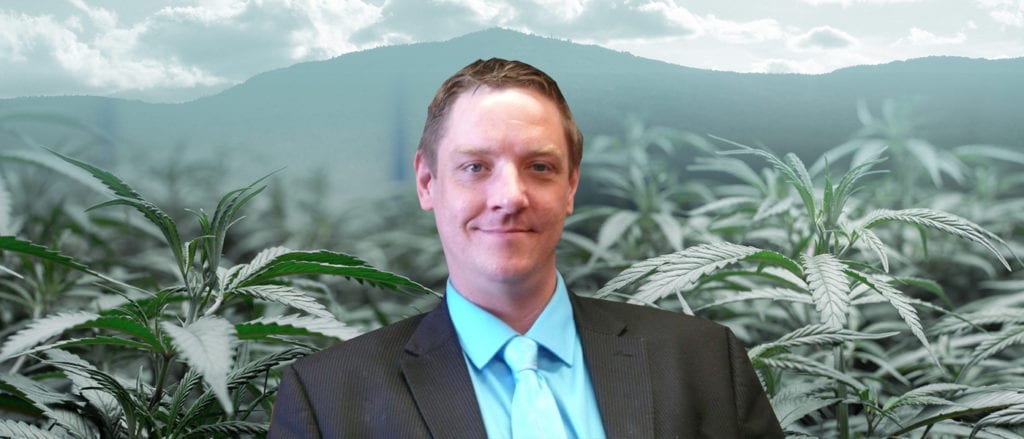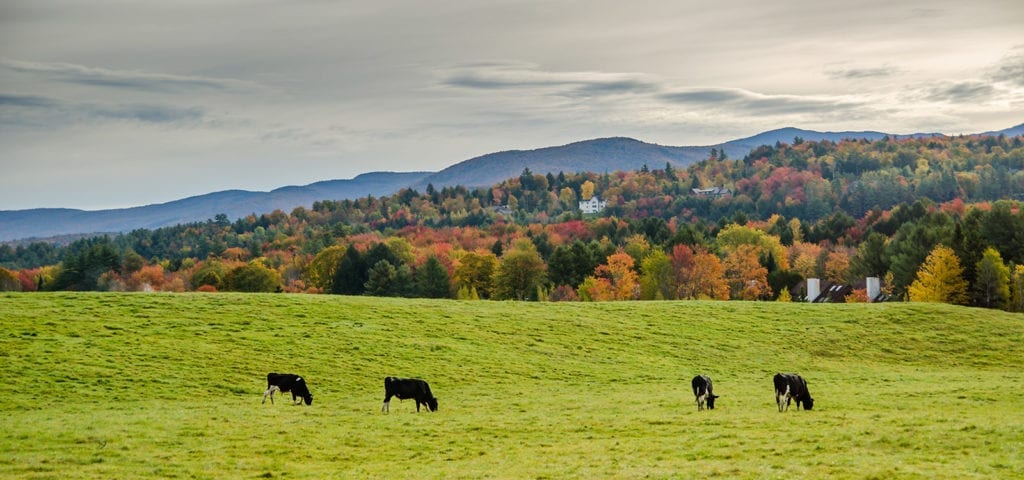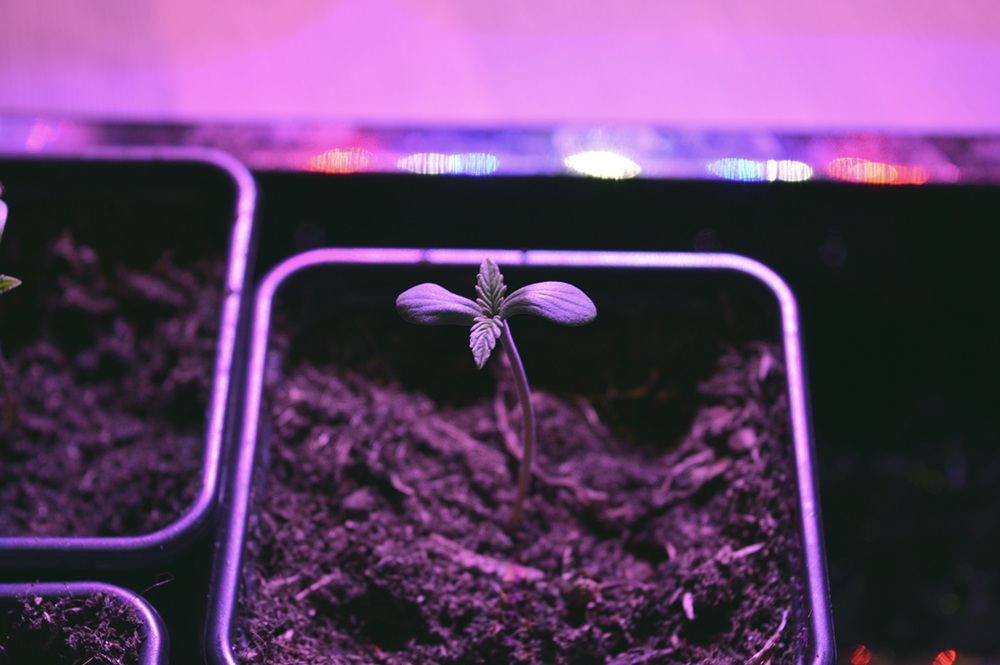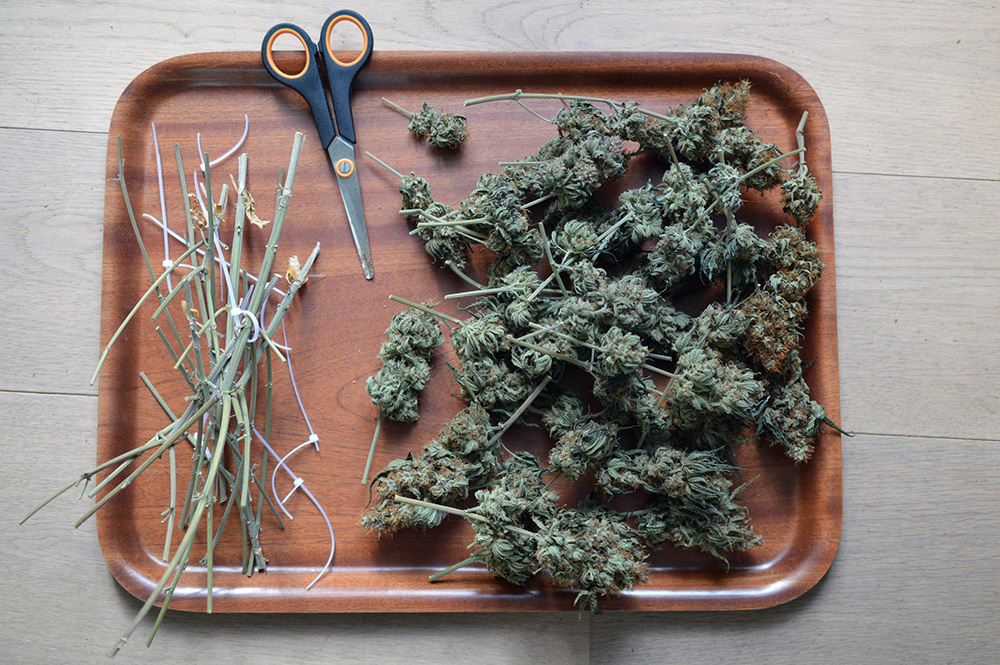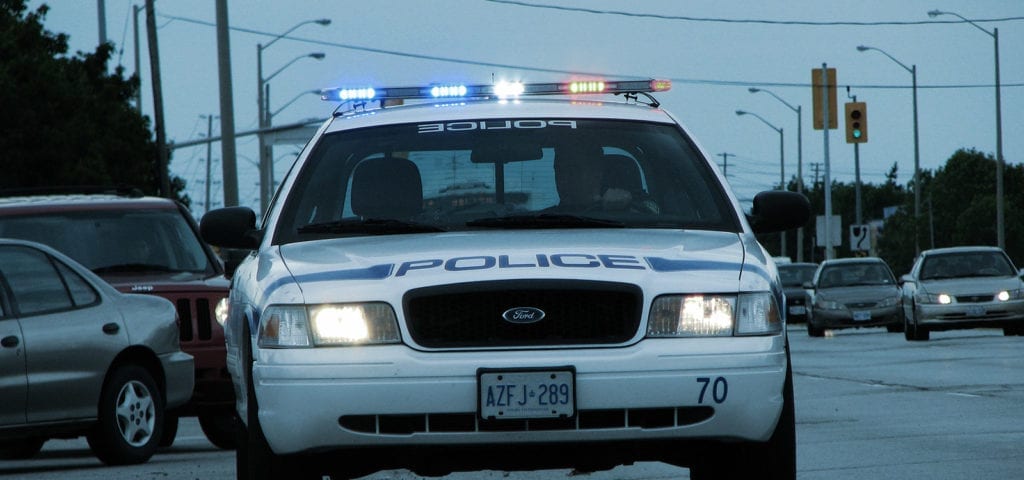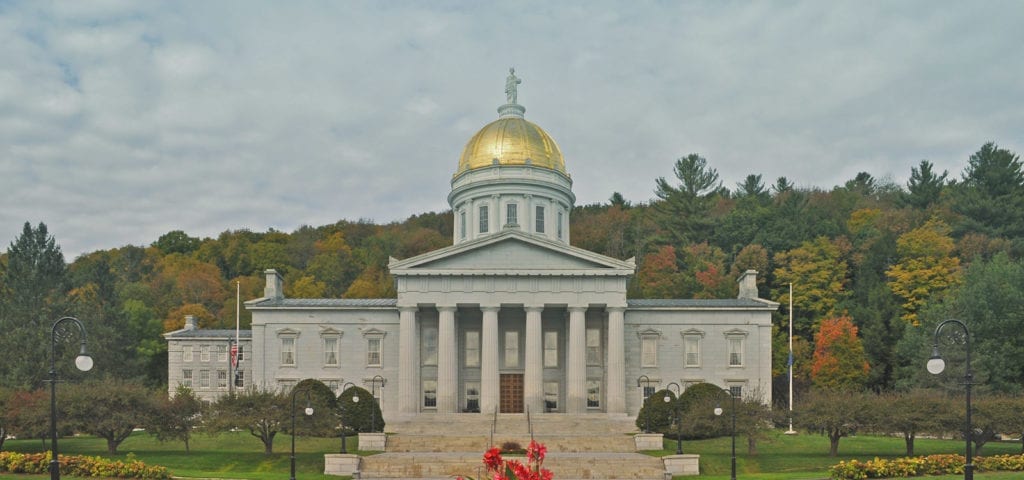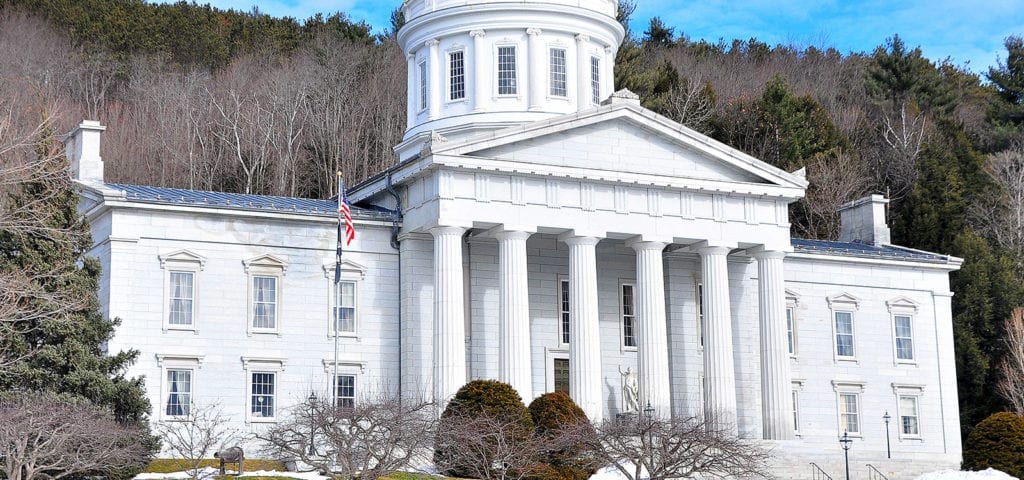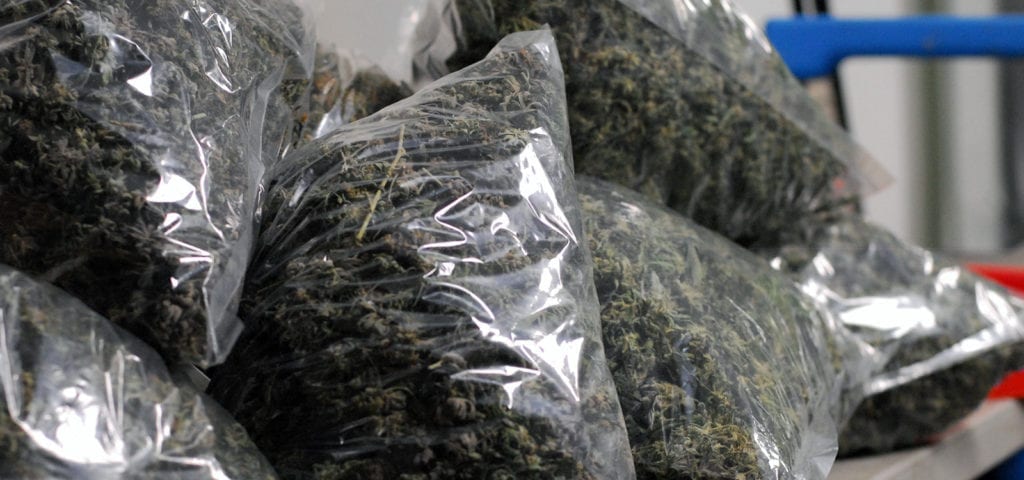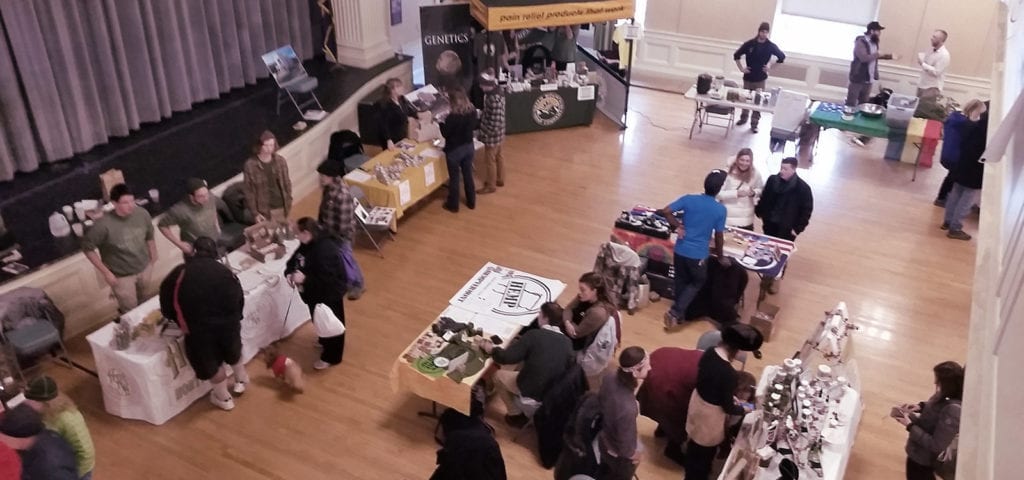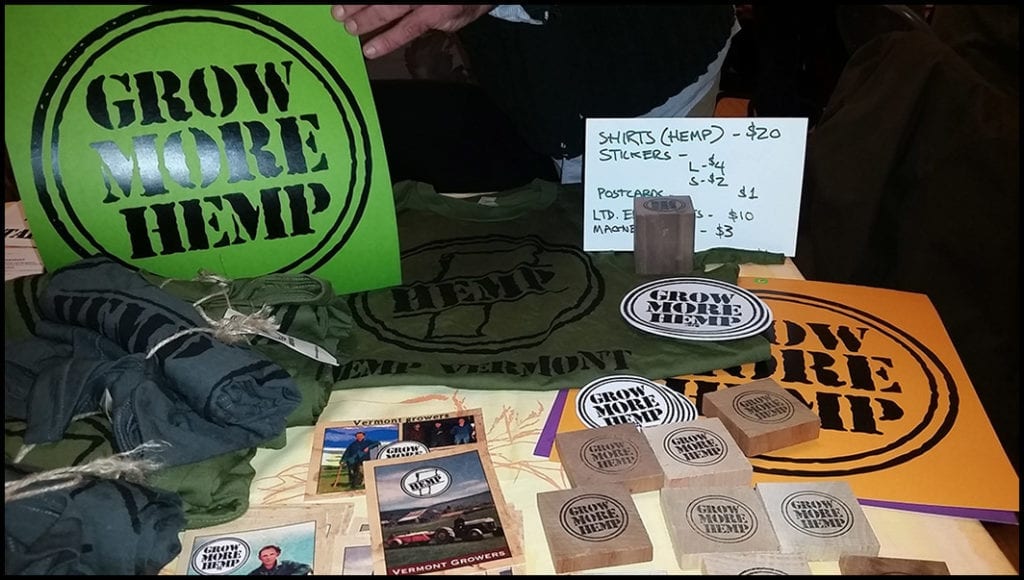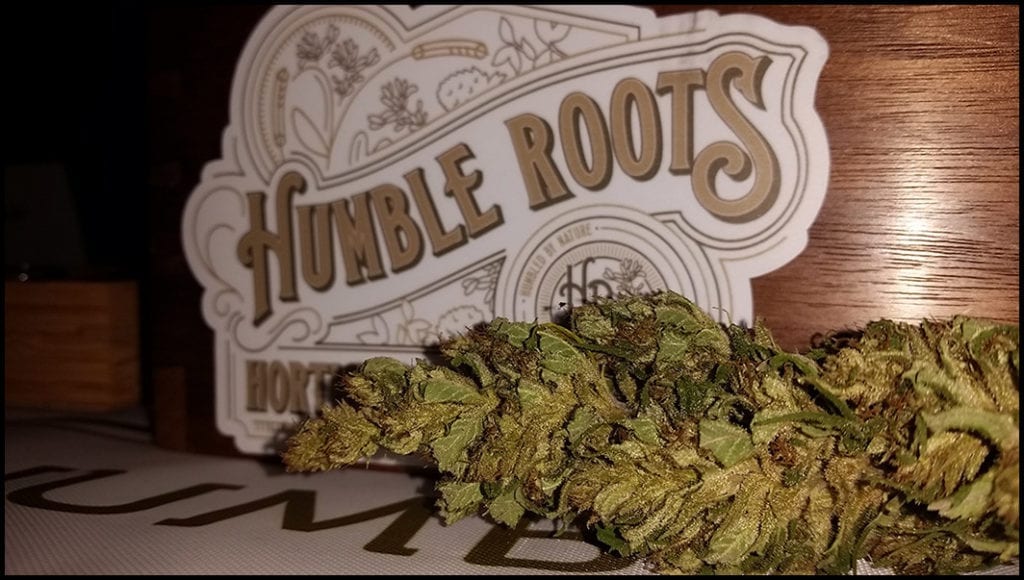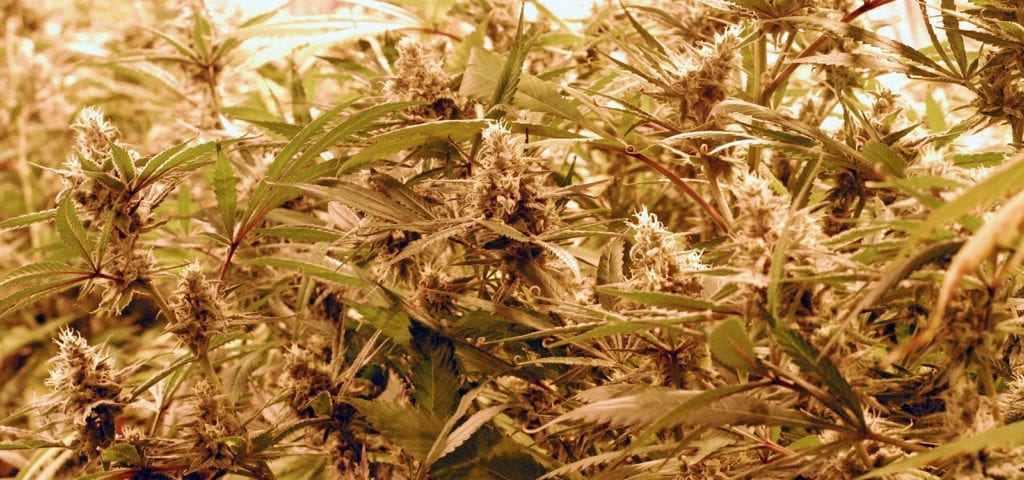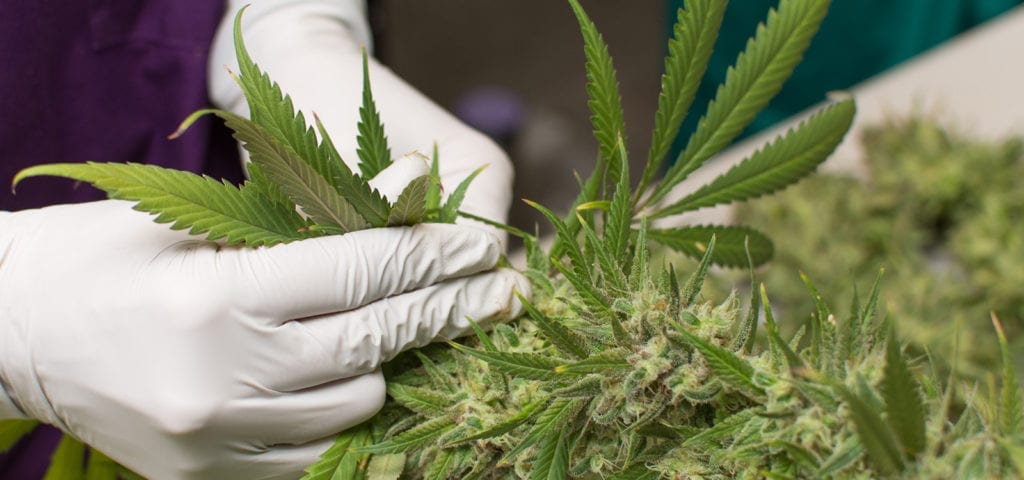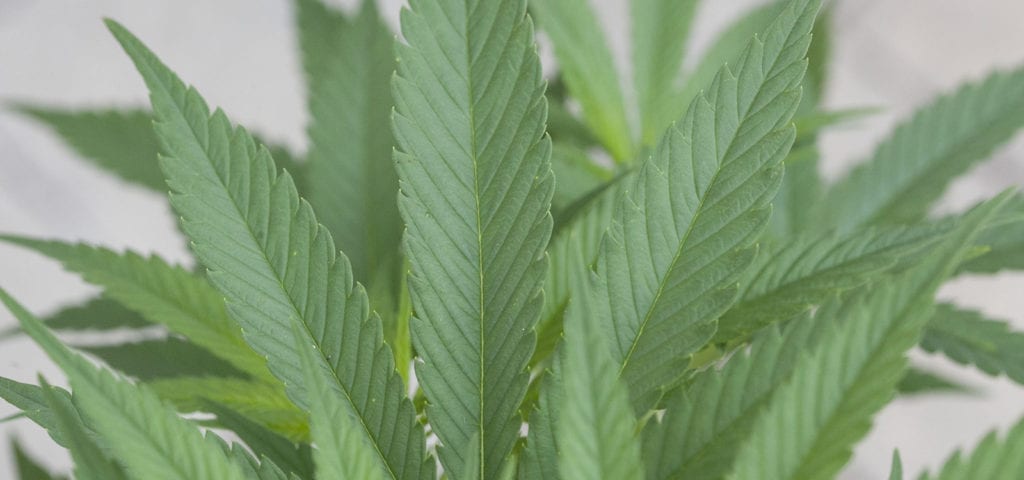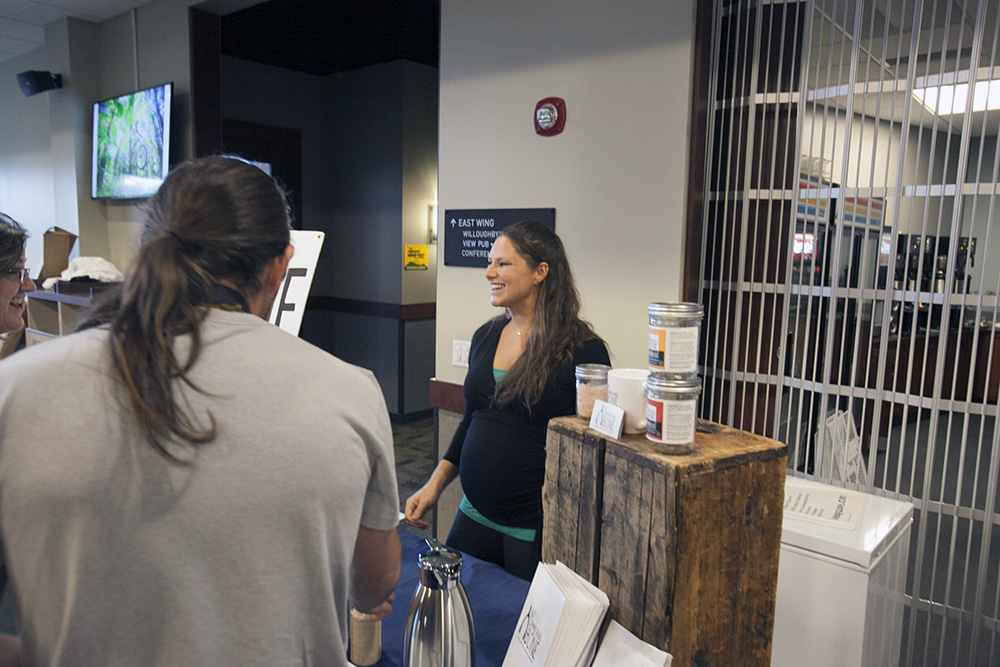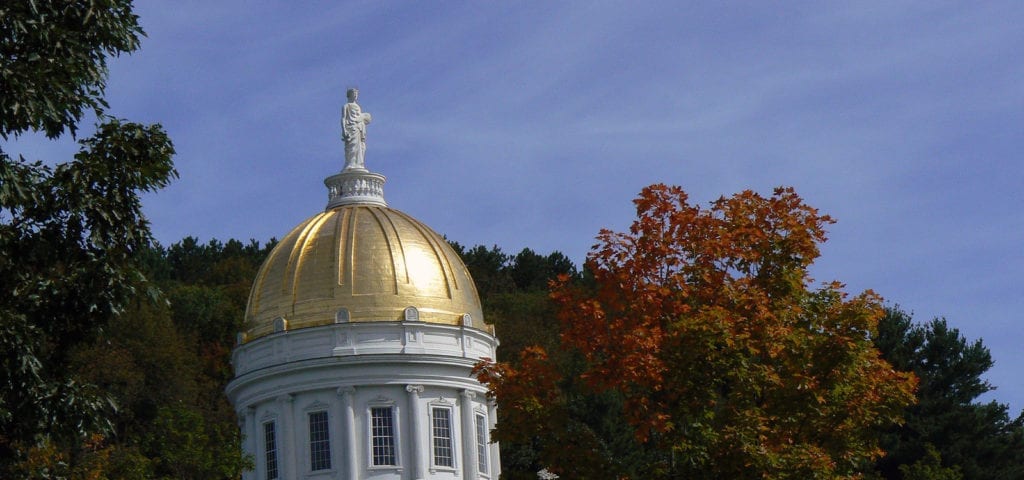Tim Fair is a Vermont-based cannabis consultant and the owner/founder of Vermont Cannabis Solutions, the state’s first cannabis law practice.
In this episode of the Ganjapreneur.com podcast, Tim joins our podcast host TG Branfalt in his Vermont studio for a conversation about the landmark cannabis reform law passed earlier this year by Vermont’s legislature, the differences between legalization and decriminalization, the state’s vibrant hemp and CBD industry, and what the industry might look like when a tax-and-regulate system is eventually put in place.
Listen to the interview through the player below, or scroll further down to read a full transcript of this week’s Ganjapreneur.com podcast episode!
Listen to the interview:
Read the transcript:
TG Branfalt: Hey there. I’m your host, TG Branfalt, and you’re listening to The Ganjapreneur.com Podcast where we try to bring you actionable information, and normalize cannabis through the stories of ganjapreneurs, activists, and industry stakeholders. Today I’m actually joined in studio by Tim Fair. He’s the owner of Vermont’s first cannabis law practice, Vermont Cannabis Solutions.
Just before we get started, we’ve got to know that nothing that Mr. Fair says should be considered legal advice. Don’t say “Well, Tim Fair said on The Ganjapreneur Podcast that this was totally cool,” because that’s not going to hold up in court. How are you doing this afternoon, man?
Tim Fair: Thank you, TG.
TG Branfalt: Tell me about yourself, man. How’d you end up in the cannabis space?
Tim Fair: At a very early age, I realized that I liked cannabis. As a teenager growing up, seeing all the messages, all of the propaganda, the DARE, all of the anti-drug propaganda we were fed, I started seeing a disconnect. What I was experiencing and what I was hearing were two different stories.
As I got older, I started realizing that everything that we were taught wasn’t necessarily true, and in that line of reasoning, I went ahead and tried to start a chapter of NORML in my very first community college, Long Island Nassau Community College, when I was 17.
Didn’t work out so well, but ever since that point, I’ve always been focused on drug policy reform. Specifically cannabis reform.
TG Branfalt: How long have you been working with cannabis cases from a criminal level?
Tim Fair: I graduated law school in 2012. Lucky enough to pass my bar on the first attempt. Got my first legal job as an attorney in 2013, but didn’t really start learning cannabis law until the last two years. I would say around 2016 I started pretty indepthly studying the subject, and I’ve taken my first cannabis clients about six months ago.
TG Branfalt: So what’s been your experience as an attorney defending cannabis cases in Vermont? I guess what I want to ask you is, did you know racial disparities in these arrests, and how did prosecutors approach such cases?
Tim Fair: A little bit of background before I can fully answer that. We have a unique system here in Vermont. We have 14 counties and each county has its own elected state’s attorney. So, when we’re talking about racial disparities, you have to talk about it in terms of county, as opposed to state, because some counties much better with the issue. Other counties, horrible with it.
Another exacerbating factor has been the surge in opiates, cocaine, crack cocaine, that come in from out of state. That has created a sense of, I don’t want to say racism amongst law enforcement, but definitely focuses their attention on brown and black people.
TG Branfalt: How do prosecutors approach these cases? There’s decriminalization, we just passed legalization, which hasn’t taken effect yet, but are prosecutors still aggressive, even with decriminalization?
Tim Fair: You have to talk about individual prosecutors, individual state’s attorneys. For example, in Chittenden County, where Burlington is located, the state’s attorney’s office does not pursue cannabis cases. They’ve got bigger, better things to do. There is an understanding that in the spectrum of illegal activities, cannabis use is pretty low as you get.
However, I’ve had a client in Essex County, Vermont, who was charged with a felony offense for 2.1 ounces. In Bennington County, for example, the state’s attorney has come out publicly with her opinion that cannabis is a dangerous drug, it’s a gateway drug, and the only way to deal with it is strict law enforcement.
TG Branfalt: Law enforcement, when legalization happened, one of the things that we saw was the police chief’s association, or whatever it actually is, they were talking about what they wanted to see in the legalization law, and one of the things that they’ve really been pushing for, and I think this goes back even a little before legalization was rolling out this oral swab test to test for cannabis impairment, or intoxication.
So first, what are the baseline problems, if there are any, which we’re going to assume that there are, with this oral swab test?
Tim Fair: A baseline problems, the entire thing is a problem. The entire concept of having to worry about drugged driving and accurate tests is ridiculous. It’s just an issue that is used by prohibitionists to stoke fear, to get the average citizen against legalization.
I’ll try to keep this short, but when I talk about drugged driving, I need to talk about DUI. DUI is an example of a pre-crime. What I mean by that is you’re taking two legal activities, drinking alcohol, and driving a car, putting them together, and making it a crime. Not because anyone has been injured or anyone’s been hurt, but because we as a society have accepted the fact that the risk, the risk that is created by operating a motor vehicle under the influence of alcohol is so high that we are going to make it a crime because of what might happen, because you might be involved in an accident, because you might cause injury to yourself or others.
That risk is so greatly elevated, we have made it a crime. Now, let’s look at cannabis use. Because we have become so used to the idea of DUI and testing for alcohol, and legal limits, humans like patterns. They like things to make sense. So, therefore, there is this inherent belief that cannabis use will result in the exact same thing as alcohol use, when behind the wheel of the car. It’s not true. It’s simply not true.
The most recent National Highway Safety Administration study that I’ve seen has shown I believe a 5% increase in the likelihood of a serious auto accident with moderate cannabis use. That’s very subjective, what’s moderate cannabis use? But the point being that the human functions that cannabis impairs are very different from the functions that alcohol impairs.
Number one being the understanding of self. When somebody’s intoxicated on alcohol, they think they can drive real well. “I can drive, I can make it there. I’m the best driver in the world.” When somebody’s consuming cannabis, they don’t think they can drive well. They don’t think they can walk well. They say, “You know what? I’m going to sit right here on this couch for a little bit.”
The functioning that is affected by cannabis use is not the same as alcohol. We don’t need to make a new pre-crime. we don’t need to be able to test people to see if they’re impaired. If they’re impaired, they will drive outside of the law, they will commit violations, they will swerve, they will drive under the speed limit, they will run a stop sign. Law enforcement can observe that, pull them over, and arrest them.
Put them through the DRE, or Drug Recognition Expert protocol, and prosecute them. End of story. We don’t have such a high level of risk to warrant or necessitate some sort of test to establish impairment when there are no signs of impairment.
TG Branfalt: One of the things that they talk about in the literature that we saw when we were out at capital during the debate, are these per se intoxication standards. Can you explain what those per se intoxication standards mean and do they differ from the current alcohol laws?
Tim Fair: So they’re designed to mimic the current alcohol laws. We like legal limits. Above this, guilty. Below this, innocent. That’s not actually how it works, but that’s how most people accept it to work, and they like that consistency. It’s a very comforting idea to have, if you have over five nanograms of THC metabolized in your system, you’re above a per se limit. Doesn’t work. It doesn’t work, because cannabis is not alcohol.
People metabolize drugs differently, they metabolize cannabis differently, metabolites can stay in the human body in different levels for different amounts of time. It’s a fat soluble compound, therefore it can stay in the fat cells much longer than alcohol, and the presence of metabolites, the presence of whatever they’re testing for, does not correlate to impairment on any level.
One person with five nanograms could be at a very, very different functional state than somebody else with the exact same amount.
TG Branfalt: I want to talk to you more about Vermont policy, specifically this idea that we talked about when we first met, this decriminalization versus legalization premise. Before we do that, we’ve got to take a break. This is the Ganjapreneur.com Podcast, I’m TG Branfalt.
If you are looking for a job in the rapidly growing and highly competitive cannabis industry, Ganjapreneur.com is the place to look. Visit the Ganjapreneur job board today to browse current openings with cannabis companies throughout the United States. From entry level bud tender positions to executive level career opportunities. You can also create a profile and upload your resume to be discovered by cannabis recruiters. Visit our job board at jobs.ganjapreneur.com to create your profile today.
If you are a business owner, you can post your job openings for as little as $25 on our job board to reach the largest and most engaged audience of cannabis professionals on the web. Companies who are listed in the Ganjapreneur business directory are eligible for free job listings. If you’re already signed up, contact us today via the website or send us an email at grow@ganjapreneur.com to activate your unique coupon.
TG Branfalt: Hey welcome back. This is the Ganjapreneur.com Podcast. I’m your host, TG Branfalt, here with Tim Fair. He’s the owner of Vermont’s first cannabis law practice, Vermont Cannabis Solutions, and a guy I really like talking to since I’ve got to Vermont. When we first met, we were in the capital, it was during legalization law and we got talking about decriminalization versus legalization.
Vermont’s legalization law has been criticized by some as being a more broad decriminalization rather than legalization because there is no tax and regulate provisions under the laws passed, and signed by Governor Scott. They make this argument, despite Vermont actually decriminalizing cannabis possession five years ago.
For those people who make that argument, who criticize this law as not being full legalization, which I mean, we could talk about the nuances of full legalization, but let’s not do that. How does this legalization differ from decriminalization?
Tim Fair: You’re certainly right about it not being full legalization. Any sort of regulation is not full legalization. This is a step. Honestly, it’s more of a psychological step. As far as practicality, how this is going to impact your average citizen’s life, not much. Those who choose to consume cannabis do so now. Those who choose not to consume cannabis don’t.
What this is going to do is act as a psychological milestone for the industry as a whole. It’s going to serve to help kill the stigma. Normalization, getting the people who still believe the propaganda that this is a dangerous drug an opportunity to see that no, in fact, it’s not.
How it’s actually going to play out as far as legality, that’s a great question. After legalization, will the smell of cannabis still be sufficient for law enforcement to apply for a warrant to search your vehicle, to search your home? With the reasoning being, “Well, maybe it’s over the legal amount, and therefore might be a crime.”
With decriminalization, the legislature specifically stated that decriminalization did not change the fact that cannabis was contraband. Even though it was no longer a criminal offense, it was a civil violation, and still provided probable cause for law enforcement to then apply for a warrant to search your vehicle, to search your person, to search your home.
That I’m hoping will change. We’ve seen a lot more positive signs from the judiciary in Massachusetts. They’ve taken a much more liberal approach to it than the Vermont Supreme Court, but as far as actually practical changes, not a lot. It’s a step, though, and it’s an important step, because we wouldn’t be getting to tax and reg without it, and that’s where we’re eventually heading.
TG Branfalt: In Vermont, now we’re entering a whole new era, come July 1st. But we already have a small hemp industry, very CBD focused. In your role as a cannabis consultant, this is a smaller industry than other states, and we’re not talking about tax and reg right now. What does a cannabis consultant in Vermont do? What do you do working within this industry, and looking forward, are you already looking forward to tax and reg?
Tim Fair: A couple of questions rolled in there. No doubt. I’ll say that for the last year, majority of what I’ve been doing is learning and lobbying. Learning about much about the industry as I possibly can, learning about the areas of law in cannabis law that I have not practiced for the last five years, getting myself up to speed, and spending a lot of time in Montpelier, working with a lot of really, really good people and advocates, moving this agenda forward.
Trying to talk to legislators, trying to dissuade some of the apprehensions, to maybe dispel some of the myths. That’s what I’ve been doing for the last year. Right now, we are an interesting place. Vermont is unbelievably supportive of the hemp industry. The legislature went as far as to put a signing statement into the statute, reaffirming their support for the hemp industry.
I’m trying to think of the exact number. I don’t know if it’s 14 or 17 states that allow hemp growing at this point, and Vermont by far is the least regulated. $25 a year, you fill out a one page form, you get your card, and you can grow hemp, which is fantastic. We’re an agricultural economy here in Vermont, and this is the beginning of what I believe to be the rejuvenation of that economy.
TG Branfalt: When you’re talking to people right now who are in the hemp industry, are there a lot of questions right now, even several months before legalization takes effect, and possibly years before tax and reg, are people already trying to figure out what that industry could look like?
And the other thing is this. Do you think that it’s going to be more representative, it’s going to be similar to the hemp industry that we have here, which is primarily small farmers?
Tim Fair: That’s a great question. I think we have to wait and see. Regulations for Vermont’s taxed and regulated system are going to be coming out this year. There’s definitely a very, very strong desire to keep this as local as possible, to keep things on the Vermont scale, and one of the things about the cannabis industry right now is that it is extremely state specific.
So, it would be very difficult for somebody from out of state to come into Vermont, let’s say a large scale operation out of Colorado. They may know the Colorado regulations very well, they may know how to function and run their business under the Colorado regulations, they won’t know anything about Vermont. They won’t know anything about the Vermont regulations, so that factor helps keep it local.
I’m hoping that we are going to maintain accessibility for the average Vermonter. That’s what Vermont Cannabis Solutions is about. We’re not taking out of state clients, we’re working with Vermont small business and entrepreneurs who want to get involved in this industry. Whether the legislature will help that or hinder it, we have yet to see.
TG Branfalt: Speaking of the legislature, I mean, it’s the first in the nation to pass legalization via the legislature. It was cool to be here when that happened, but how long … You’ve spent a lot more time in Montpelier than I have. How long do you think the legislature’s going to let this gray market exist? I mean, we both hear things about donations and these things that are already happening in Massachusetts, and Massachusetts, to their credit, is allowing it to go on pretty much in the open. How long do you think that’s going to jive with the legislature, just watching the money fall out of their pockets?
Tim Fair: There’s two ways they can go. The gifting cannabis economy, we see it in D.C., we see it in Maine, we’re seeing it develop in Massachusetts. This is a function of going halfway. Legalization without a taxed and regulated system. I was having an email exchange with a former professor of mine at Vermont Law School the other day, and when you look at the statutes in Vermont, gifting is allowed. Gifting is allowed.
The statutes specifically state that it is illegal to sell quantities of cannabis under one ounce, but when you talk about distribution, it’s only addressed in quantities above one ounce. There’s noticeably lack of any mention of prohibition of distribution under an ounce. Meaning, you can give away up to an ounce perfectly legally. What does that lead to? That leads to the $100 Snickers bar that comes with a free quarter ounce, or in D.C., the juice bars that serve $50 glasses of orange juice with a free eighth.
It’s runarounds, it’s loopholes. It’s entrepreneurs looking at the system and figuring out how they can move forward with the framework as it is. I believe this is not going to last long. The two options the legislature has is A, they can go back and try to reconvene and pass a bill to close the loophole, which will take a whole session, or they can establish tax and regulation.
This year we will most likely be seeing Canada come online with it’s recreational program. We’ll be seeing Massachusetts come online, Maine hopefully after LePage gets out. People will be actually seeing functioning, well-functioning cannabis systems and once they’re seeing it with their own eyes, once they’re seeing all the gloom and doom predictions of the prohibitionists are not coming true, the sky is not falling, six year olds aren’t running around with joints, what they will see is a good functioning systems that are generating significant tax revenue. I think when people see that, tax and reg is inevitable.
TG Branfalt: I mean, it’s coming. I mean, briefly, I just want to talk to you very briefly, just before we started recording, we were looking at that lawsuit that’s happening on a federal level. I mean, at some point, right, the crest has got to come? I mean, New England is basically decriminalized throughout. All of Vermont’s borders, save for New Hampshire, right? No, New York, sorry, my bad. But I mean, New York, you look at New York, what have they got? Pennsylvania, that’s it. Jersey’s on its way. I just want to, just point out what we’re looking at from our perspective in Vermont, you know?
Tim Fair: Jersey is the East Coast key. Once Jersey goes, New York will go, and once New York goes, then we’ve got the East Coast. For me, it was California legalizing recreational. That was the point for me where I fully believed that the toothpaste can’t be put back in the tube. The genie ain’t getting back in the bottle, no matter what we see from the federal government. Once California estimated 6-7 billion dollar a year industry-
TG Branfalt: Which the whole industry did nine billion last year I think is the number.
Tim Fair: Yeah, with a B. That to me was the point of no return. But the federal government goes kicking and screaming. It’s very difficult to get anything done under the best of circumstances in Washington, and where we find ourselves now, I’ll just say are not the best of circumstances. That’s why another kind of benefit of the state specific nature of this industry that has allowed the states to really take it and run with it on their own.
Yes, inevitability. That’s a great word. The industry is inevitable. How long it’s going to take, how long we have the prohibitionists kicking and screaming. That’s impossible to tell right now.
TG Branfalt: So I want to get your advice for current operators and other people within Vermont’s market. Before we do that, we’ve got to take a last break. This is Ganjapreneur.com Podcast with TG Branfalt.
At Ganjapreneur, we have heard from dozens of cannabis business owners who have encountered the issue of cannabias, which is when a mainstream business, whether a landlord, bank, or some other provider of vital business services refuses to do business with them simply because of their association with cannabis. We have even stories of businesses being unable to provide health and life insurance for their employees because the insurance providers were too afraid to work with them.
We believe that this fear is totally unreasonable, and that cannabis business owners deserve access to the same services and resources that other businesses are afforded, that they should be able to hire consultation to help them follow the letter of the law in their business endeavors, and that they should be able to provide employee benefits without needing to compromise on the quality of coverage they can offer.
This is why we created the Ganjapreneur.com business service directory, a resource for cannabis professionals to find and connect with service providers who are cannabis friendly and who are actively seeking cannabis industry clients. If you are considering hiring a business consultant, lawyer, accountant, web designer, or any other ancillary service for your business, go to Ganjapreneur.com/businesses to browse hundreds of agencies, firms, and organizations who support cannabis legalization and who want to help you grow your business.
With so many options to choose from in each service category, you will be able to browse company profiles and do research on multiple companies in advance, so you can find the provider who is the best fit for your particular need. Our business service directory is intended to be a useful and well-maintained resource, which is why we individually vet each listing that is submitted.
If you are a business service provider who wants to work with cannabis clients, you may be a good fit for our service directory. Go to Ganjapreneur.com/businesses to create your profile and start connecting with cannabis entrepreneurs today.
TG Branfalt: Hey welcome back to the Ganjapreneur.com Podcast. I’m your host, TG Branfalt, here with Tim Fair, owner of Vermont’s first cannabis law practice, Vermont Cannabis Solutions, and kindred spirit, especially when it comes to the sole federal government issue. So, I wanted to ask you, your advice for current operators in Vermont. That’s what you focus on, that’s where we are. Do you think that those who are focused on hemp right now have a slight headstart as we inch towards tax and reg?
Tim Fair: Absolutely. I mean, there’s no question about it. They’re getting the experience in the industry, they’re getting the experience, whether it’s growing the crop, whether it’s extracting whether it’s selling. Whatever people are doing, they’re getting that experience now. As far as non-hemp cannabis, higher THC level cannabis, that’s limited really right now to our medical dispensaries.
The average entrepreneur’s not having that opportunity, so the people right now who are in the hemp and CBD, yeah, they’re getting a headstart. The question is are they all going to want to transition into cannabis? Some yes, some no. But that doesn’t mean that there aren’t steps that can be taken right now for those who want to get into the legal cannabis market. Whether it’s recreational or medicinal.
TG Branfalt: Earlier you said that you think it’s going to be harder for out of state people to enter the Vermont market. If people wanted to start looking at that market now, what would advice be for those who are or might be interested in entering Vermont’s market when it starts to become established?
Tim Fair: You mean people from out of state who might want to come in?
TG Branfalt: Yeah, yeah.
Tim Fair: Learn the Vermont way. Learn Vermont.
TG Branfalt: It’s tough. I mean, neither one of us are from Vermont.
Tim Fair: No, no, absolutely. Growing up in New York City, it blew my mind here. But Vermont is a lot more about who you are. It’s about face to face connections. It’s about knowing people. In order to succeed in the Vermont market, especially at this point in time, who you know, the impression you’ve made on people, the reputation that you have within the cannabis community here in the state, that is going to carry a lot more weight than what you’ve done somewhere else, or how much money you may have.
It really comes down to knowing each other, and if somebody from out of state had a real serious interest in coming into Vermont, come to Vermont. Come to some events. Come to some lobbying events. Meet people in the community. We’re a small state, we’re a relatively small community, and it’s very accepting.
The thing people don’t want to do is just simply come in and try to buy their way into the industry. That’s just not really going to work here in Vermont.
TG Branfalt: You’ve had your own interesting path to sit in this chair, talking about cannabis, lawyer. What’s your advice for other entrepreneurs who are seeking to enter the cannabis space? Just people who may not be in this industry now.
Tim Fair: Know why you want to get into the industry. If the answer is, “Because I think I’m going to make a bunch of money,” pick another industry. Know why you want to get into it. Once you’ve figured out why you want to get into it, my next piece of advice is learn the industry. It’s not simply about hanging around and getting stoned all day, and growing some pot.
This is a growing industry. When you factor in the CBD, industrial hemp, all of the uses, the sitting around, getting stoned, a piece of the pie. But there’s a lot more to the industry than that. The nuances of the industry, what has happened over the last five years in Colorado and California, in Oregon, in Washington, in Alaska. These are lessons that can be learned. These are real lessons. Some of them will be applicable to Vermont, some of them will not.
But by studying the industry, by seeing the problems and how they’ve been dealt with, it’s going to be the best way to have a realistic expectation of one’s experience here in Vermont in the industry.
TG Branfalt: I mean, this has been really cool, man. Like, I’m stoked to have you on the show. I mean, when we met in Montpelier, we both looked at each other like, “All right, I got you. I got you.” Where can people find out more about what you’re doing with the Vermont Cannabis Solutions, find out more about you? Plug it up, man.
Tim Fair: I’m not real good at self-promotion or plugs. I’ll say the website, www.VermontCannabisSolutions.com, is my first attempt at a website, so take it easy on me. But it’s got a lot of contact information, talks a lot about what we’re trying to do here in Vermont. Other than that, tfair@bwvlaw.com. Shoot me an email, happy to chat with anyone, anytime.
TG Branfalt: Dude, I really, again, I appreciate it, and I’m sure we’ll be sitting in these chairs chatting in a few months when legalization’s getting close, man. I appreciate it again.
Tim Fair: I certainly hope so, TG. I appreciate it, my man.
TG Branfalt: You can find more episodes of the Ganjapreneur.com Podcast in the podcast section of Ganjapreneur.com, and in the Apple iTunes Store. On the Ganjapreneur.com website, you will find the latest cannabis news and cannabis jobs updated daily, along with transcripts of this podcast. You can also download the Ganjapreneur.com app in iTunes and Google Play. This episode was engineered by Trim Media House. I’ve been your host, TG Branfalt.
